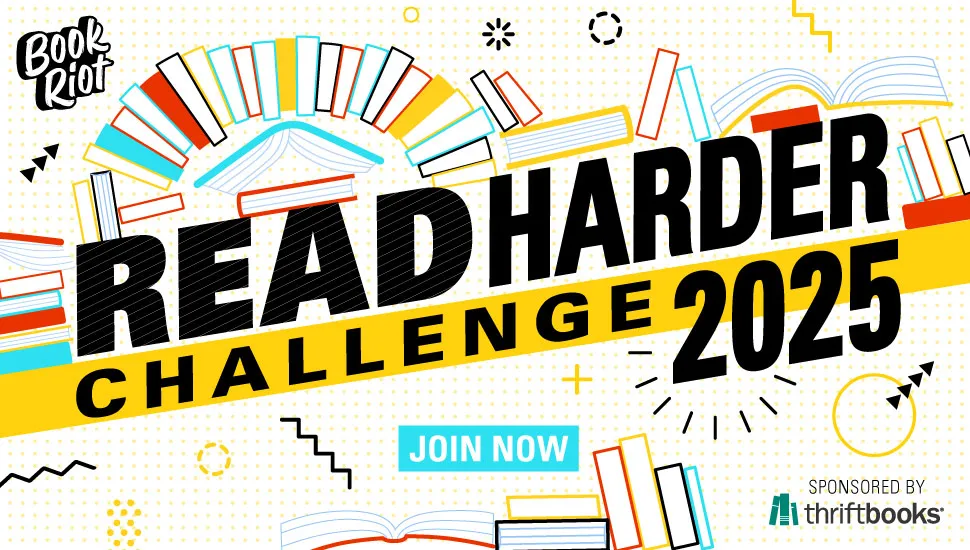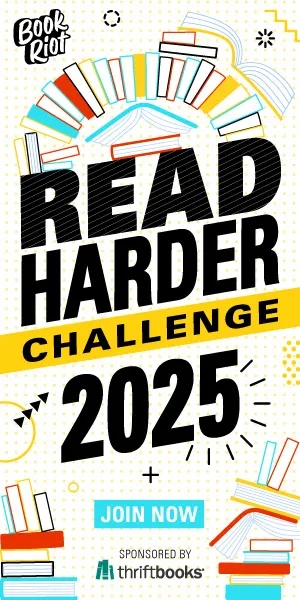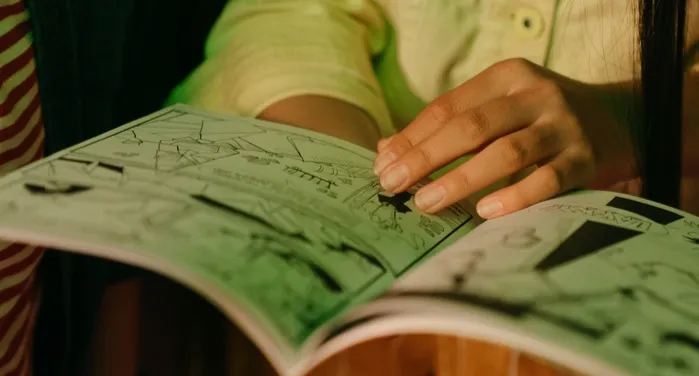
Comics and Graphic Novels About Families
Family. It’s a never-ending source of material, from family histories to family conflicts to exploring relationships, and more. Family of origin, found family, making your own family — there are so many stories to tell. Family shapes us and informs who we are (and who we aren’t), for better or worse. The stories we choose to share allow others in, and reach out at the same time.
I love graphic novels and memoirs, but especially about families. For me, I’ve found that the pairing of text and illustration allows the nuance and complexities to really be highlighted on the page, providing another layer to the story.
Even comics that aren’t about family per se can often provide familial backstory or context. Ms. Marvel, for example: the main arc isn’t often about Kamala’s family, it’s about her superhero pursuits – but we see her family interacting with her at home, we see them eating and going to the mosque, and we see different life events and milestones.
I’ve put together a list of comics and graphic novels about families, in middle-grade, YA, and adult categories. I’d say don’t get too hung up on the reading level or classification; I’ve found these to blur with graphic novels, especially when tackling topics like family.
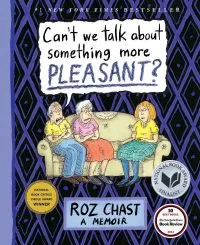
Can’t We Talk About Something More Pleasant?: A Memoir by Roz Chast
In this graphic memoir, Chast, a New Yorker cartoonist, tackles the topic of caring for aging parents, especially as an only child. The memoir covers the last few years of her parents’ lives, watching her father’s dementia get worse and the decisions Chast had to make. Along with her illustrations and honest prose, the story unfolds through photos and documents as well. Heartbreaking and humorous, this is an honest look at parenting parents.
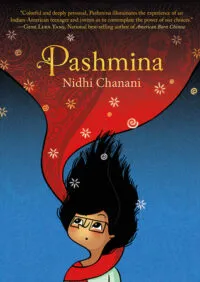
Pashmina by Nidhi Chanani
This middle grade graphic novel follows Priyanka, who has a lot of questions for her mom as to why she left India years ago, including who her father is and why her mom left him. Except her mom won’t talk about India. At all. When she finds an old pashmina in a suitcase, she’s magically transported to India in her mind. At its core, this story explores relationships, roots, and the choices people make (or are forced to make).
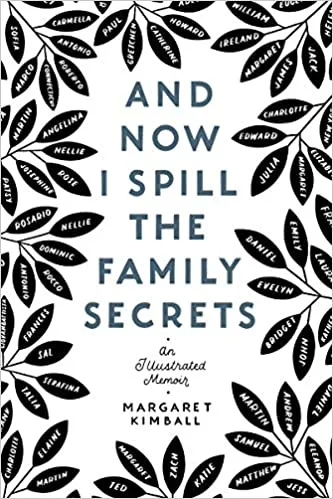
And Now I Spill the Family Secrets: An Illustrated Memoir by Margaret Kimball
When Kimball was 4 years old, her mother attempted suicide on Mother’s Day, and this was never discussed again. Thirty years later, she dives into family secrets, using diaries, hospital records, home videos, and more, she traces various family stories throughout her childhood to understand the fault lines that run through her family. Mental health and familial relationships weave together to form Kimball’s narrative, and the result is a memoir of real life that’s often kept behind closed doors.
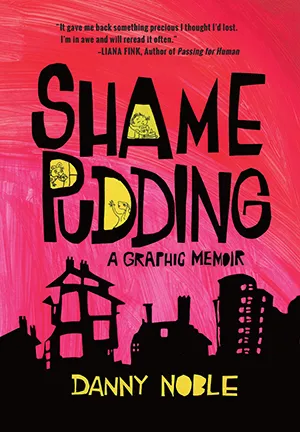
Shame Pudding by Danny Noble
When Noble was growing up, she lived around the corner from her two Jewish grandmothers, one of whom would pinch her cheeks and say “Shayna punim!,” which means “pretty face” in Yiddish…except no one told Noble that. Being that it sounds like “shame pudding,” she was never sure if it was an insult. This graphic memoir explores Noble’s eccentric and colorful family, while also examining love, friendship, body image, self-esteem, religious identity, and much more — all while paying homage to the special love and the relationships with grandmothers.
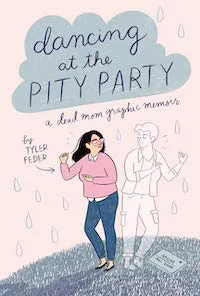
Dancing at the Pity Party: A Dead Mom Graphic Memoir by Tyler Feder
Feder writes about her mother’s cancer, death, and her subsequent grief in this graphic memoir. Struggling to orient herself after her mother’s death, she details the post-death firsts, the mundane but devastating events that one does after a death like cleaning out the closets, and the instinct to pick up the phone and call her. She is honest and raw, describing grief in the most real way.
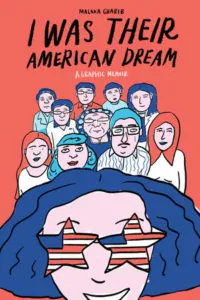
I Was Their American Dream: A Graphic Memoir by Malaka Gharib
Gharib, a first generation American of Filipine and Egyptian descent, writes about growing up in America and navigating her family’s cultural background and trying to fit in with white culture at the same time — all while feeling the pressure to succeed. Although this is Gharib’s personal story, she also discusses what it’s like to be a child of immigrants and the specific family pressures they feel and the challenges they often juggle. She’s humorous and sharply observant, and captures her family in an intimate way that she then shares with the reader.
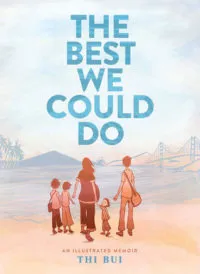
The Best We Could Do by Thi Bui
In this graphic memoir, Bui shares the story of her family’s escape from South Vietnam in the 1970s, and the struggles in rebuilding their lives. But even more than that, when Bui becomes a first-time mother, she realizes and reflects on what it means to parent. She explores the bonds of family, intergenerational trauma, and identity. The writing and illustrations complement each other nicely, making the story even more powerful.
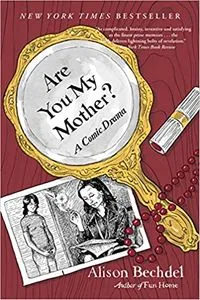
Are You My Mother?: A Comic Drama by Alison Bechdel
Bechdel examines her relationship with her mother in this graphic memoir. Her mother was unhappily married to a closeted gay man, and she wanted to be an artist. When Bechdel was 7, her mother stopped touching or kissing her goodnight. She digs deep into psychology, with Winnicott’s concept of the “good enough mother” and how her relationship with her mother has impacted her life and work, and examines who her mother really is. It’s a smart look into what makes us who we are and how our parent(s) shape us.
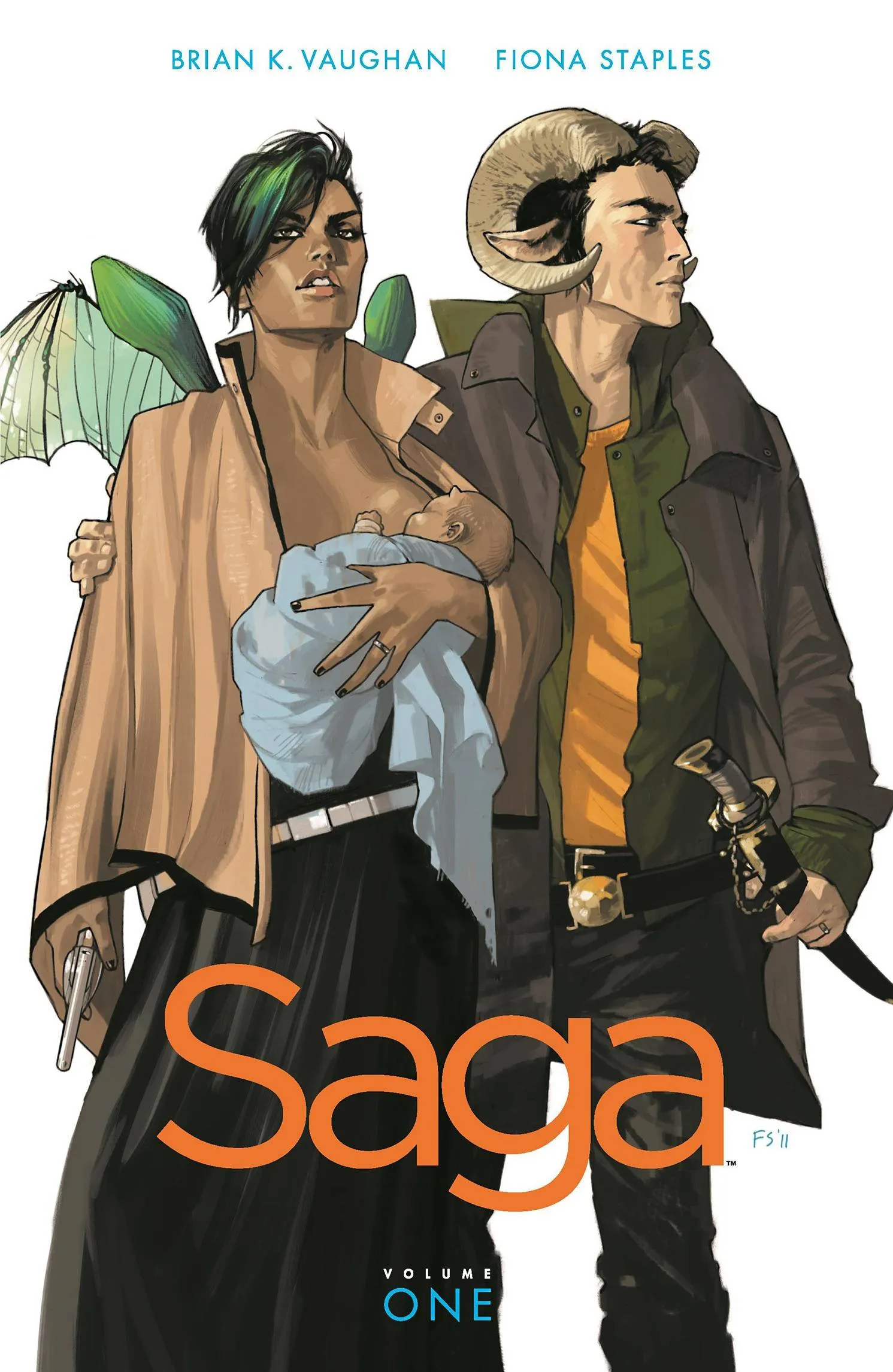
Saga, Vol.1 by Brian K. Vaughan & Fiona Staples
There are multiple volumes, but I chose to focus on the first volume. Two soldiers on opposite sides of a galactic war fall in love and decide to have a baby together. It’s space opera meets fantasy meets science fiction, and the result is gorgeous and heart-rending. The family flees to raise their daughter away from violence (and also to avoid the people trying to hunt them down). You’ll be pulled into this family’s world, and won’t want to leave.
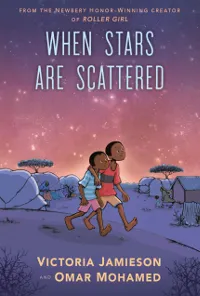
When Stars Are Scattered by Victoria Jamieson, Omar Mohamed, & Iman Geddy
Omar and Hassan have lived in the Kenyan refugee camp of Dadaad almost their whole lives. Omar knows his nonverbal brother needs more, and life is hard in the camp. When he has the chance to go to school, he knows it’s an opportunity to change their lives forever — but it also means he would leave his brother alone every day, and his brother is the only family he has left. This is Mohamed’s story, as told to Jamieson.
If you’re looking for even more graphic novels, check out this post about where to buy manga, and this post on middle grade graphic novels.



